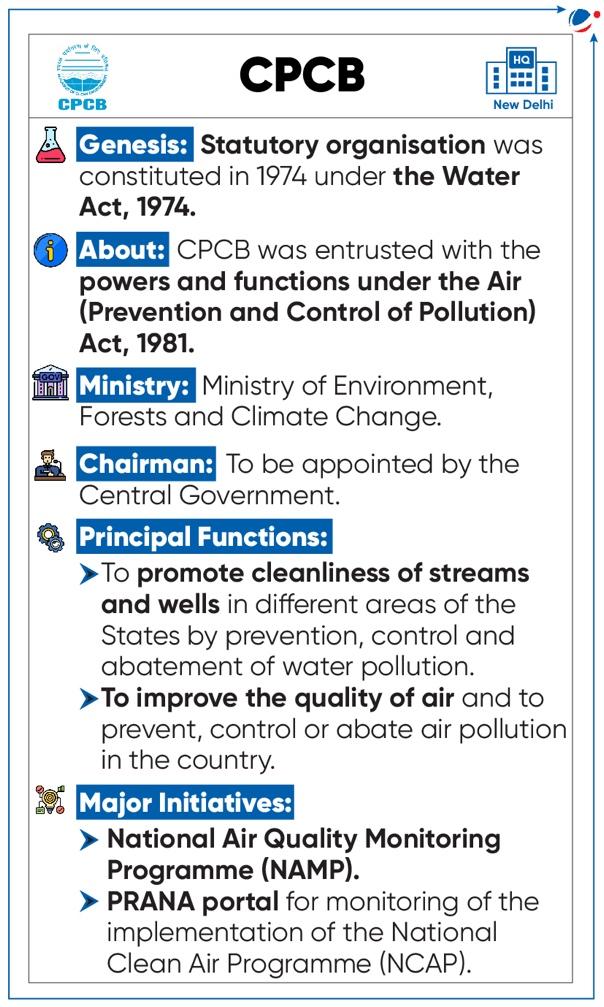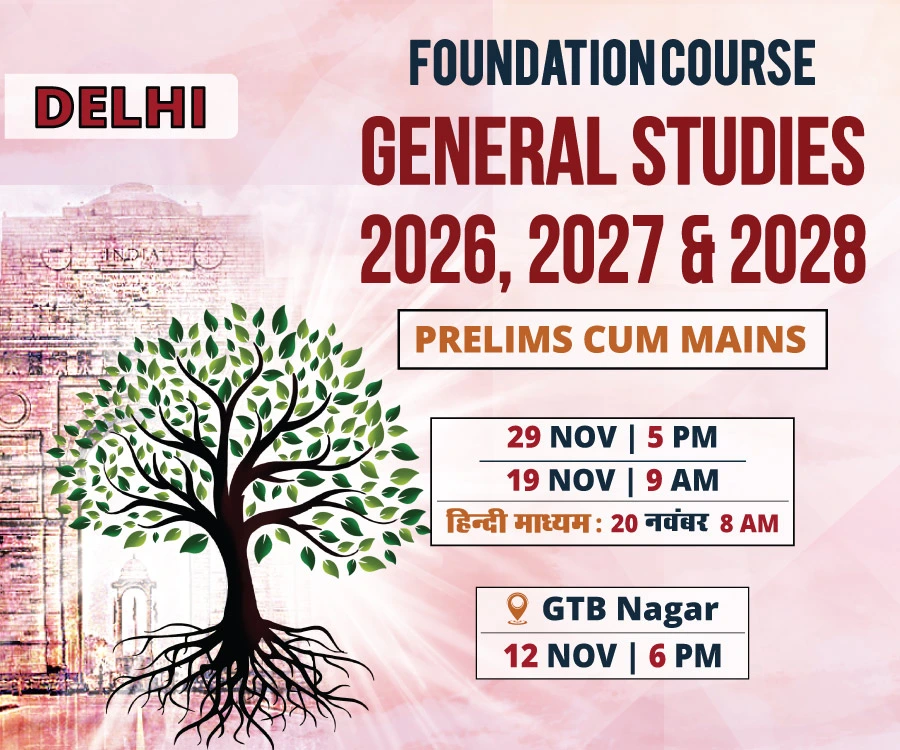Why in the news?
The Parliament recently passed the Water (Prevention and Control of Pollution) Amendment Act, 2024.
More on the News
- It amends the Water (Prevention and Control of Pollution) Act 1974.
- Application: Currently, the Water Amendment Act 2024 will apply to Himachal Pradesh, Rajasthan (both passed resolution to amend the Act) and the Union territories.
- Water is a state subject and its optimal utilization and management lies predominantly within the domain of the States.
- However, Article 252 of Constitution empowers Parliament to legislate on any matters with respect to which it lacks legislative power.
- Any Such Act by the Parliament shall apply to States passing such resolution and to any other State by which it is adopted.
- Also, such Act could be amended or repealed only by the Parliament.
About Water (Prevention and Control of Pollution) Act 1974
- The Act provides for the prevention and control of water pollution, and for the maintaining or restoring of wholesomeness of water in the country.
- The original Act is applicable in 25 States.
- This was amended twice in 1988 and 2003.
- Regulatory bodies: Creation of the Central Pollution Control Boards (CPCB) and State Pollution Control Boards (SPCB)
- Approval: Mandatory for industrial units to get permission from their respective State boards before setting up factories.

Key Amendments (Water Amendment Act, 2024)
Key Aspects | Water Act, 1974
| Water Amendment Act, 2024
|
Chairman of SPCB | The Act states the chairman of the State Pollution Control Board will be nominated by the State government. | The central government will prescribe the manner of nomination and the terms and conditions of service of the chairman. |
Consent exemptions for establishing industries | The Act empowered the State Government to “exempt certain categories of industrial plants” from the restrictions on new outlets and discharges.
| It specifies that the central government, in consultation with the CPCB, may exempt certain categories of industrial plants from obtaining such consent.
|
Penalty for offences | It prescribes imprisonment of up to Six years for discharge of polluting matter. | Act decriminalises several violations, and instead imposes penalties between ₹10,000 and ₹15 lakh. |
Offences by government departments | The head of a department will be deemed guilty for offences committed by government departments; provided that they prove due diligence was carried out to avoid such contravention. | The Act specifies that the head of a department will be required to pay penalty equal to one month of their basic salary if the department violates any provision of the Act. |
Other provisions of Amendment Act 2024:
- Tampering with Monitoring Devices: Knowingly altering or interfering with monitoring devices such as water meter or gauges incurs a penalty ranging from ₹10,000 to ₹15 lakh.
- Adjudicating officer: The Act allows the central government to appoint adjudication officers to determine penalties under the Act.
- The officer must be of the level of a Joint Secretary to the central government, or of Secretary to the state government.
- Penalties imposed by the adjudicating officer will be credited to the Environment Protection Fund established under the Environment (Protection) Act, 1986.
- Appeal: Appeals against orders passed by the adjudicating officer may be made before the National Green Tribunal, after depositing 10% of the penalty levied.
Significance
- Decriminalization for Trust-Based Governance: By decriminalizing and rationalizing minor offences, the amendment fosters ease of living and business operations without the fear of imprisonment for minor defaults.
- Reduced Regulatory Burden: Exemptions for establishing industries reduce duplication of surveillance and unnecessary burden on regulatory agencies, facilitating smoother business operations while maintaining environmental standards.
- Streamlined Appointment Processes: Streamlining the appointment of chairpersons of state boards with uniform qualifications and procedures ensures transparency in the selection process, preventing inefficient individuals from prolonged tenure due to political influence.
- Balancing Development and Environment Protection: The amendment seeks to strike a balance between economic growth and environmental sustainability, crucial for long-term prosperity.
Criticism of the amendments
- Ineffectiveness of Penalties: Enforcement of penalties for minor offences, such as littering at Ghats, has proven challenging due to logistical and cultural reasons.
- Persistent Water Pollution Issues: The State of the Environment Report 2023 revealed that 46% of India's rivers, including the Ganga, are dealing with pollution issues.
- Ignoring the Climate and water Crisis: Groundwater loss due to warming temperatures threatens India's food and water security, with NITI Aayog estimating 400,000 deaths annually due to contaminated water.
- Detrimental Impact on Future Economy: Recognizing the importance of water conservation is crucial for sustainable economic growth.
- Affecting Federalism: Act seeks to take away most existing powers of the state to run the operation of SPCBs and is against the principle of federalism.
Conclusion
There is need for Stakeholder Engagement through consultations with environmental experts, industry representatives, and civil society organizations to refine the amendments and address concerns. Also, training and capacity-building programs for Pollution Control Boards can enhance effective enforcement of environmental regulations.








